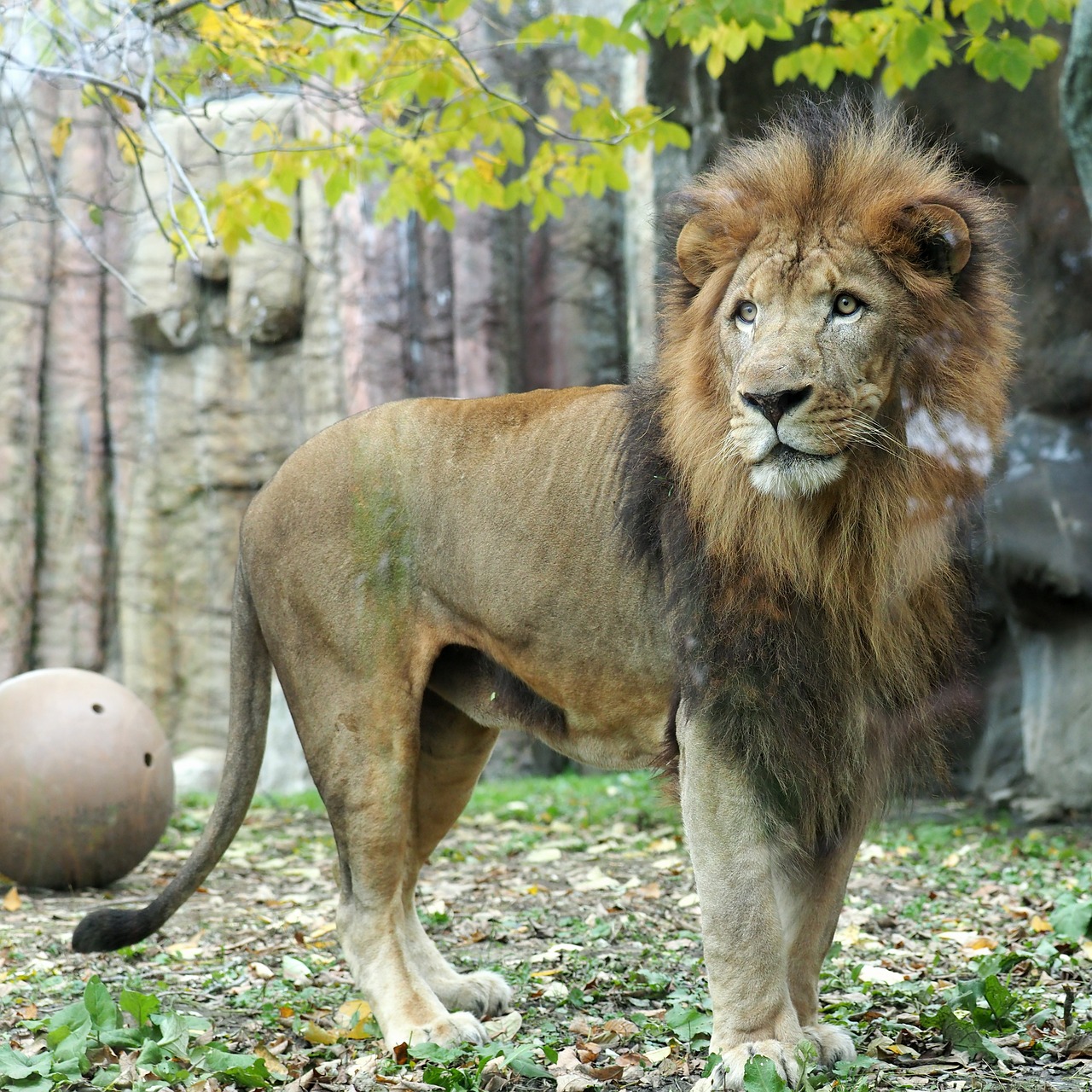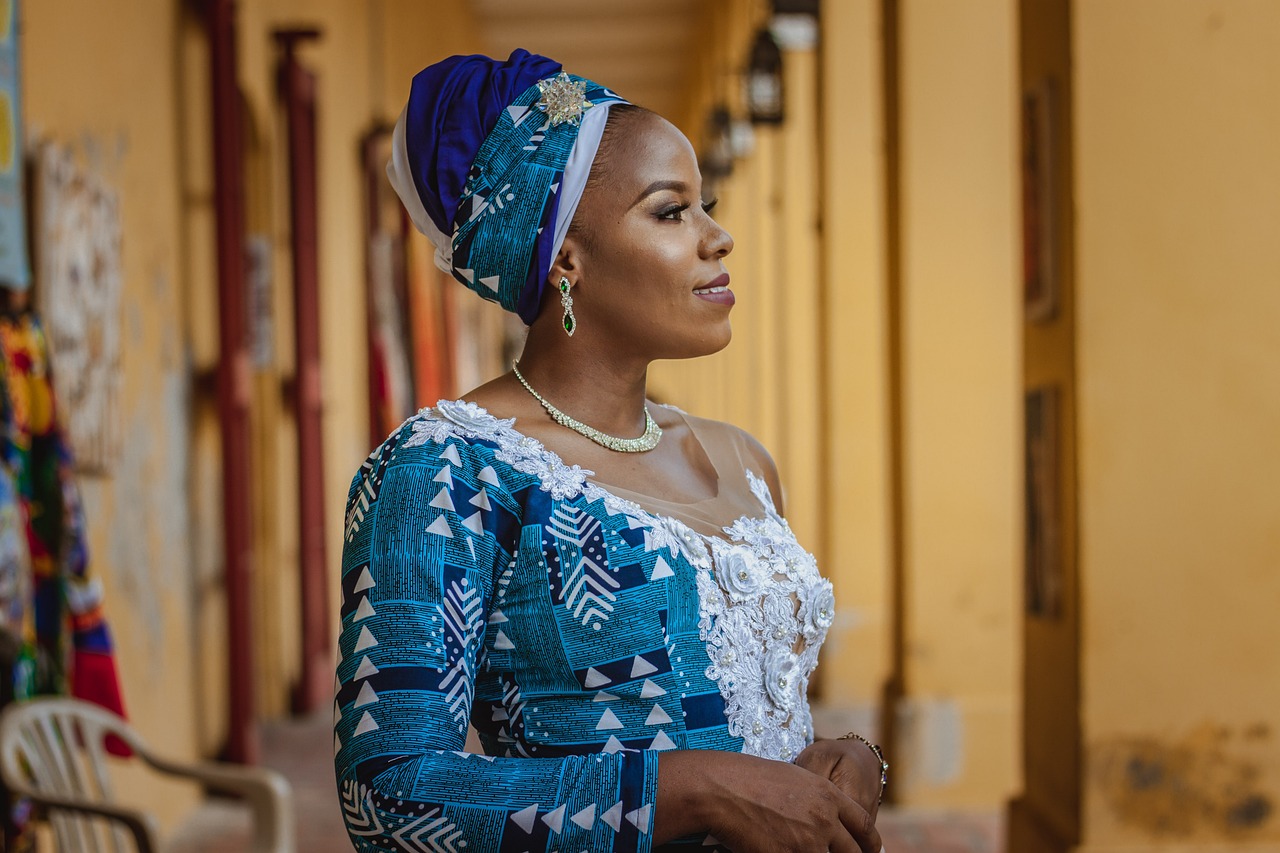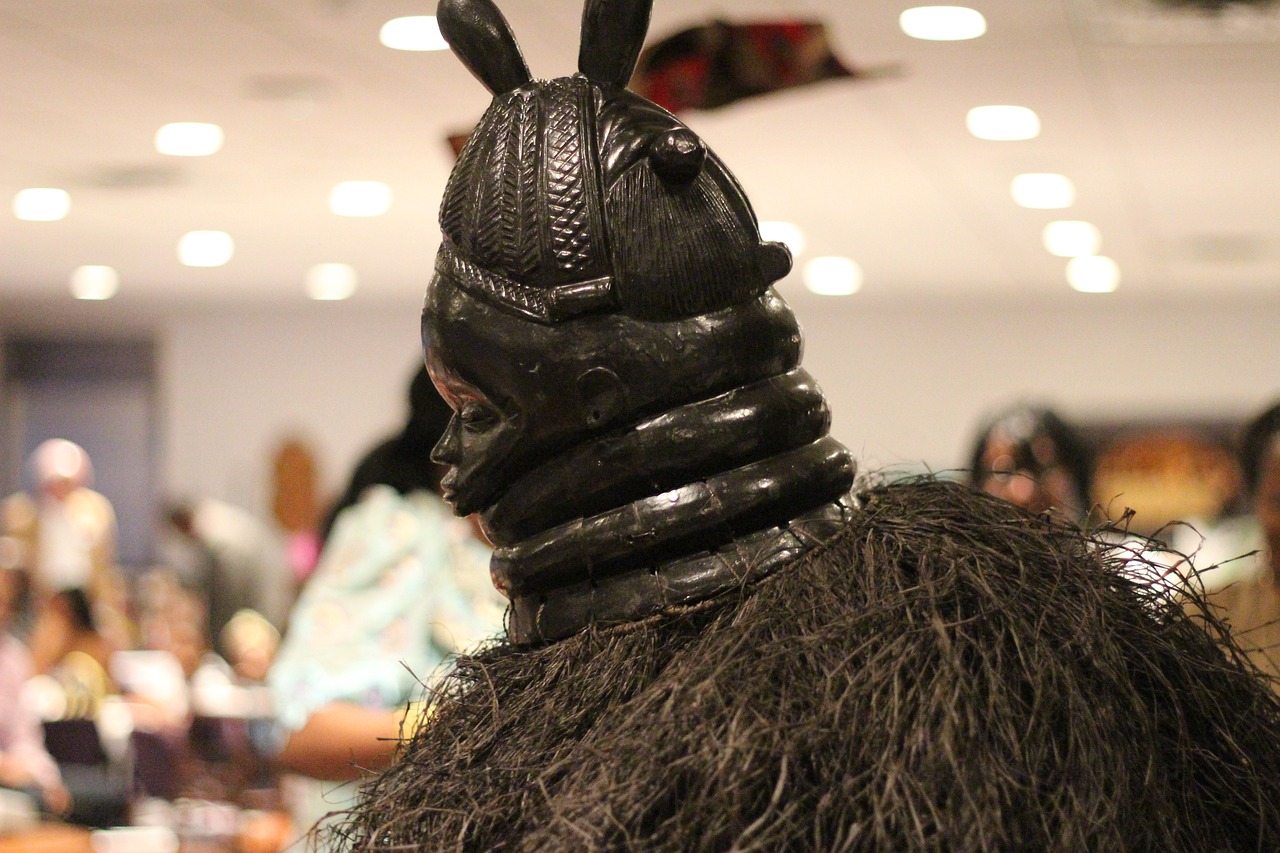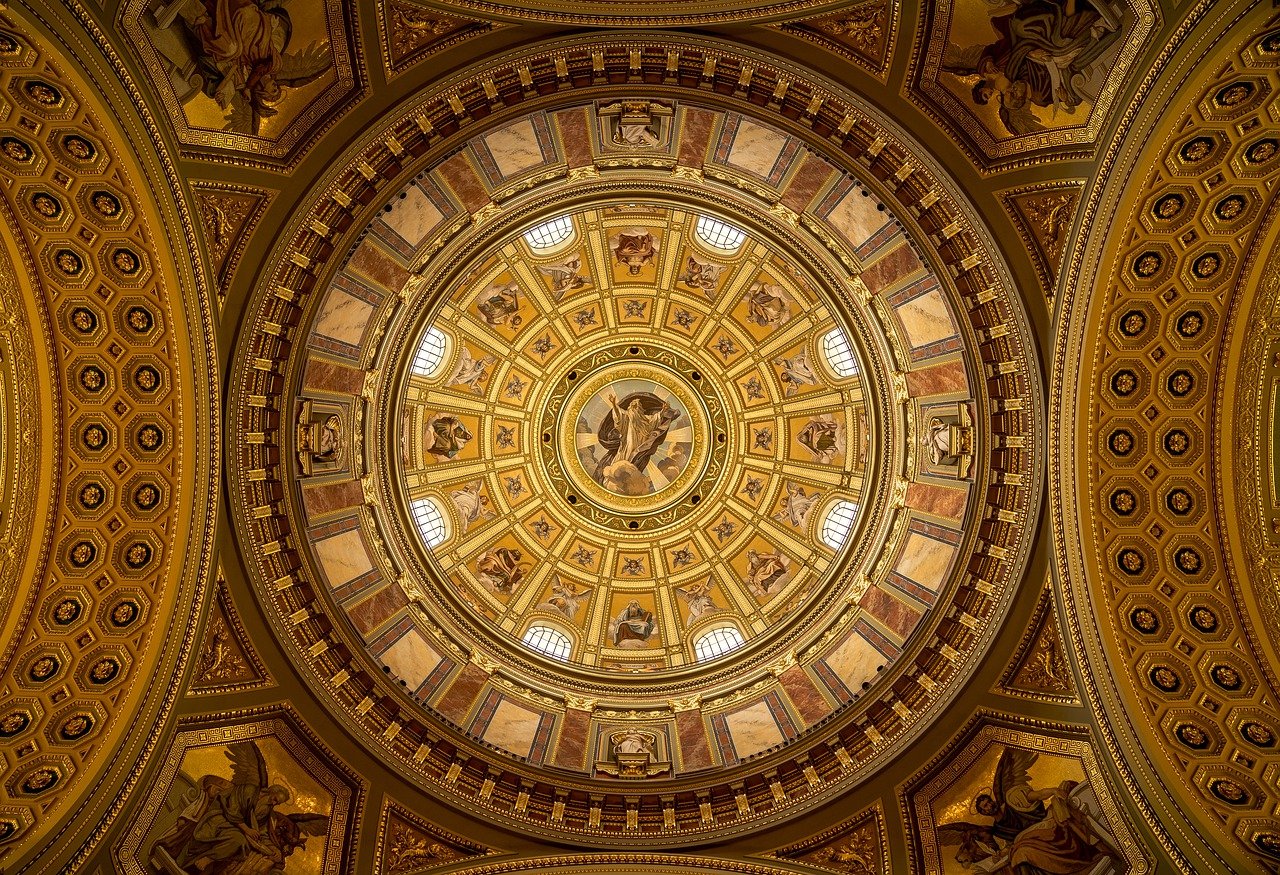Ancient African Religions - A Comparative Study
Ancient African religions have left a profound mark on the continent's history, reflecting a tapestry of beliefs, rituals, and deities that vary across different cultures and regions. From the majestic temples of ancient Egypt to the sacred groves of the Yoruba people in Nigeria, the spiritual traditions of Africa are as diverse as the continent itself.
One of the most well-known ancient African religions is that of the Egyptians, whose pantheon of gods and goddesses shaped every aspect of life, from agriculture to the afterlife. In contrast, the Yoruba religion places a strong emphasis on ancestor veneration and nature worship, with Orishas serving as intermediaries between humans and the divine.
Among the Zulu people of Southern Africa, rituals like animal sacrifices and spirit possession ceremonies are central to their religious practices, reflecting a deep connection to ancestral spirits and the supernatural world. In stark contrast, the San people follow a hunter-gatherer spiritual tradition, focusing on trance dancing and shamanic healing to maintain harmony with nature and the spirit realm.
Traveling to Mali, we encounter the Dogon people, whose religion revolves around the enigmatic Nommo and intricate cosmological beliefs passed down through oral traditions. In Ghana, the Akan religion honors a pantheon of deities while promoting moral values and community rituals that foster spiritual growth and unity.
Further south, Bantu religion encompasses ancestor worship and nature spirits, with ceremonies designed to maintain balance and harmony with the spirit world. Lastly, the Khoisan people practice animism, viewing all living and non-living entities as imbued with spiritual essence, engaging in shamanic healing and rituals to communicate with the unseen forces.
As we delve into the rich tapestry of ancient African religions, we uncover a world where the divine intersects with the earthly, where rituals and beliefs shape the fabric of society and individuals' lives. These diverse traditions offer a glimpse into the spiritual landscape of Africa, highlighting the interconnectedness of humanity with the natural and supernatural realms.

Egyptian Religion
The ancient Egyptian religion is a fascinating tapestry of beliefs and practices that shaped one of the most enduring civilizations in history. At the heart of Egyptian spirituality was a complex pantheon of gods and goddesses, each with their own unique powers and attributes. These deities were not distant figures but rather active participants in the lives of the people, influencing everything from the annual flooding of the Nile to the success of military campaigns.
Central to Egyptian religious life was the concept of ma'at, which represented order, balance, and harmony in the universe. The Egyptians believed that maintaining ma'at was essential for the well-being of society and the cosmos, leading to the development of elaborate rituals and ceremonies to uphold this cosmic balance.
One of the most well-known aspects of Egyptian religion is the belief in the afterlife. The Egyptians held a profound reverence for death as a transition to the eternal realm, where the soul would undergo a series of trials and judgments before reaching the paradise of the Field of Reeds. To ensure a successful journey to the afterlife, elaborate funerary practices such as mummification, tomb construction, and the burial of grave goods were performed.
Moreover, the Egyptian religion was deeply intertwined with political power, as the pharaoh was not only a political leader but also a divine intermediary between the gods and the people. The construction of monumental temples, the celebration of religious festivals, and the establishment of cult centers were all ways in which the pharaoh demonstrated his piety and legitimacy as a ruler.
In conclusion, the ancient Egyptian religion offers a glimpse into a world where the divine and the earthly were intricately connected, where rituals and beliefs shaped every aspect of life, and where the quest for immortality and spiritual enlightenment was paramount.

Yoruba Religion
The Yoruba religion, originating from Nigeria, is a vibrant and complex spiritual tradition that has captivated scholars and practitioners alike. At the heart of Yoruba beliefs are the Orishas, a vast pantheon of deities that govern various aspects of the natural and supernatural worlds. These Orishas are revered and worshipped through intricate rituals and ceremonies, with each deity embodying unique qualities and powers.
Central to Yoruba religion is the concept of ancestor veneration, where respect and honor are paid to deceased relatives who are believed to influence the lives of their descendants. Ancestor worship plays a crucial role in maintaining familial connections and seeking guidance from past generations.
Divination practices are also integral to Yoruba spirituality, with methods such as Ifa divination used to communicate with the Orishas and seek guidance on important life decisions. Through divination, Yoruba priests and priestesses can interpret the will of the deities and offer insights into the future.
Yoruba religion places a strong emphasis on spiritual connections to nature, viewing the natural world as a sacred and interconnected realm inhabited by divine forces. Rituals and ceremonies often take place in natural settings, such as forests or rivers, to honor the Orishas and seek their blessings.
Moreover, the Yoruba people believe in the concept of Ashe, a spiritual energy that permeates the universe and empowers individuals to manifest their desires through positive actions and intentions. Ashe is considered a fundamental force that shapes human destiny and influences the outcomes of events.
In summary, Yoruba religion is a rich tapestry of beliefs, rituals, and practices that reflect the profound spiritual connection between humans, deities, ancestors, and the natural world. It is a tradition steeped in reverence, wisdom, and a deep appreciation for the divine forces that shape the fabric of existence.

Zulu Religion
Zulu religion, practiced in Southern Africa, is deeply rooted in the belief in a supreme being, ancestral spirits, and the power of diviners. The Zulu people hold a strong connection to their ancestors, whom they believe play a significant role in their daily lives and well-being. Rituals and ceremonies are essential components of Zulu religious practices, with activities like animal sacrifices and spirit possession playing a crucial role in maintaining harmony and spiritual balance.
Central to Zulu religion is the concept of Ukuthwasa, which refers to the process of spiritual initiation and becoming a traditional healer or diviner. Those called to Ukuthwasa undergo rigorous training and rituals to connect with the ancestral spirits and receive guidance to fulfill their spiritual roles within the community. This practice highlights the importance of spiritual guidance and the interplay between the physical and spiritual realms in Zulu belief systems.
Moreover, Zulu religion places a strong emphasis on the role of diviners, known as Sangomas, who act as intermediaries between the human and spirit worlds. Sangomas use divination techniques such as throwing bones or consulting ancestral spirits to provide insight, healing, and guidance to individuals seeking assistance with various aspects of their lives. The respect and reverence for Sangomas demonstrate the intricate relationship between humans, spirits, and the natural world in Zulu religious traditions.
Furthermore, Zulu religious ceremonies often involve energetic music, dance, and drumming to invoke spiritual energies and connect with the divine realm. These vibrant rituals serve as a means of communication with the ancestors and the spiritual forces that guide and protect the Zulu community. Through music and dance, the Zulu people express their devotion, gratitude, and reverence for the spiritual entities that shape their existence.
In Zulu culture, the practice of Ukuhlola is significant, involving the consultation of diviners to diagnose and address spiritual afflictions or disturbances affecting individuals or communities. Through Ukuhlola, Zulu people seek spiritual remedies and guidance to restore balance and harmony in their lives, acknowledging the interconnectedness of the physical, emotional, and spiritual aspects of human existence.

San Religion
The San people of Southern Africa follow a unique spiritual tradition that is deeply rooted in their hunter-gatherer lifestyle and close connection to nature. Central to San religion is the practice of trance dancing, where individuals enter altered states of consciousness to communicate with the spirit world and gain insights into healing and divination. Shamans play a crucial role in the community, acting as intermediaries between the physical and spiritual realms, guiding rituals, and offering healing through herbal remedies and spiritual ceremonies.
The San people believe in a sacred relationship with the natural world, viewing animals, plants, and the elements as imbued with spiritual essence. This animistic belief system shapes their daily lives, guiding their interactions with the environment and fostering a profound respect for all living beings. Rituals and ceremonies are conducted to honor the spirits of the land and seek their guidance in matters of hunting, gathering, and community well-being.
Furthermore, the San religion places a strong emphasis on communal harmony and cooperation, with rituals and gatherings serving as occasions for social bonding and shared spiritual experiences. Through storytelling, music, and dance, the San pass down their oral traditions and cultural heritage, reinforcing their identity and connection to their ancestral roots.

Dogon Religion
The Dogon people of Mali have a deeply intricate religious system that revolves around their cosmology and spiritual beliefs. At the core of Dogon religion are the Nommo, amphibious ancestral beings who are central figures in their creation myth. These Nommo are believed to have imparted sacred knowledge about the universe to the Dogon through oral traditions and rituals passed down through generations. The Dogon place great importance on preserving this knowledge and passing it on to future generations with utmost care and reverence.
Central to Dogon religious practices is the performance of elaborate rituals that seek to maintain harmony with the universe and the spirit world. These rituals often involve intricate dance performances, symbolic gestures, and offerings to appease the spirits and ancestors. The Dogon believe that by honoring their ancestors and following the guidance of the Nommo, they can ensure the well-being of their community and maintain balance in the world.
One of the most fascinating aspects of Dogon religion is their deep connection to astronomy and cosmology. The Dogon are known for their advanced knowledge of celestial bodies and their complex understanding of the universe. Their cosmological beliefs are reflected in their religious practices, with rituals and ceremonies often aligning with astronomical events and celestial phenomena.
Furthermore, the Dogon practice shamanic healing, where spiritual healers known as Hogon use their connection to the spirit world to diagnose and treat illnesses. These healers play a crucial role in the community, providing not only physical healing but also spiritual guidance and support to those in need. The Dogon view illness as a manifestation of imbalance in the spiritual realm, and through rituals and ceremonies, they seek to restore harmony and well-being.
In conclusion, Dogon religion offers a unique and profound insight into the spiritual beliefs and practices of this ancient African culture. Their reverence for the Nommo, their intricate rituals, and their deep connection to the universe set Dogon religion apart as a rich and complex tradition that continues to fascinate and inspire scholars and spiritual seekers alike.

Akan Religion
Akan religion, originating in Ghana, is a vibrant and complex belief system that honors a diverse pantheon of deities known as Abosom. These deities govern various aspects of life, such as fertility, agriculture, war, and wisdom, embodying different virtues and characteristics. Central to Akan religious practices is the concept of Nsamanfo, the spirits of the ancestors who are revered and consulted for guidance and blessings.
The Akan people place a strong emphasis on moral values and community rituals to maintain harmony and balance in the spiritual realm. Priests and priestesses play a crucial role in facilitating communication with the spiritual world through prayers, offerings, and divination ceremonies. Consultations with these spiritual leaders are sought for guidance, healing, and resolving conflicts.
One of the key rituals in Akan religion is the pouring of libations, where offerings such as water, schnapps, or palm wine are presented to the deities and ancestors as a sign of respect and gratitude. These libation ceremonies are performed during important occasions, such as weddings, funerals, and festivals, to seek blessings and protection from the spiritual forces.
The Akan people believe in the interconnectedness of the physical and spiritual worlds, viewing nature as a sacred entity that must be respected and preserved. Through ceremonies, songs, and dances, they express their reverence for the earth, rivers, forests, and other natural elements, acknowledging the presence of spiritual beings within them.
Moreover, Akan religion incorporates elements of syncretism, blending indigenous beliefs with influences from Christianity and Islam due to historical interactions and cultural exchanges. This fusion of traditions has contributed to the richness and diversity of Akan spiritual practices, reflecting the adaptive nature of the belief system over time.

Bantu Religion
Bantu religion, prevalent in Central and Southern Africa, is deeply rooted in the worship of ancestors and nature spirits. The belief system of the Bantu people revolves around maintaining harmony with the spirit world through various rituals and ceremonies. Ancestor worship is a central aspect of Bantu religion, where reverence and offerings are made to deceased family members to seek their guidance and blessings.
Moreover, the Bantu people hold strong spiritual beliefs in nature spirits that inhabit the natural world around them. These spirits are believed to influence the daily lives of individuals and communities, requiring respect and acknowledgment through rituals and ceremonies. The Bantu tradition emphasizes the interconnectedness of all living beings and the importance of preserving the balance between the physical and spiritual realms.
Rituals play a significant role in Bantu religion, serving as a means of communication with the spirit world, healing practices, and rites of passage. Ceremonies for healing, initiation into adulthood, and protection from malevolent forces are conducted to maintain the well-being of the community and individuals. These rituals often involve music, dance, chanting, and symbolic gestures to invoke spiritual forces and ancestral blessings.
The spiritual leaders in Bantu religion, such as shamans and elders, play a crucial role in guiding the community through spiritual practices and ceremonies. They act as intermediaries between the physical and spiritual realms, interpreting signs and messages from the spirit world to provide guidance and wisdom to the people. Consultations with these spiritual leaders are sought for various matters, including health, relationships, and community conflicts.

Khoisan Religion
The Khoisan people of Southern Africa have a deeply rooted spiritual tradition based on animism, a belief system that attributes spiritual essence to all living and non-living entities. Central to Khoisan religion is the concept of the interconnectedness of all beings, where humans, animals, plants, and even rocks possess a spiritual presence. This animistic perspective shapes every aspect of Khoisan life, from daily practices to sacred rituals.
Shamanic healing is a prominent feature of Khoisan religion, with healers known as shamans or medicine men playing a vital role in the community. These spiritual leaders are believed to have the ability to communicate with the spirit world, diagnose illnesses, and perform rituals to restore balance and harmony within individuals and the community as a whole. Through trance dancing and ceremonial practices, shamans channel the healing energies of the spirit realm to address physical, emotional, and spiritual ailments.
Furthermore, rituals in Khoisan religion serve as a means of communication with the spirit world. These ceremonies often involve offerings to appease ancestral spirits, seek guidance from nature deities, or celebrate important milestones within the community. Through intricate dances, music, and storytelling, the Khoisan people honor their spiritual beliefs and maintain a strong connection to their ancestral heritage.
The Khoisan also hold a deep reverence for the natural world, viewing the environment as a sacred manifestation of the divine. They believe that every living creature and natural element possesses a spirit that must be respected and preserved. This ecological consciousness influences their hunting and gathering practices, as well as their spiritual rituals, which are conducted in harmony with nature to ensure the well-being of both the physical and spiritual realms.
Overall, Khoisan religion reflects a profound respect for the interconnectedness of all life forms and the spiritual essence that permeates the natural world. Through their animistic beliefs, shamanic healing practices, and reverence for nature, the Khoisan people embody a spiritual tradition that honors the sacredness of existence and the enduring bond between humanity and the cosmos.
Frequently Asked Questions
- What are the common themes among ancient African religions?
Ancient African religions often share common themes such as ancestor veneration, a deep connection to nature, belief in a supreme being or multiple deities, and the use of rituals for spiritual practices and communication with the spirit world.
- How did ancient African religions influence daily life?
Ancient African religions played a significant role in shaping daily life by guiding social customs, moral values, agricultural practices, healing methods, and governance structures within various communities. These belief systems provided a framework for understanding the world and one's place in it.
- What role did rituals play in ancient African religions?
Rituals held a central place in ancient African religions, serving purposes such as honoring ancestors, seeking guidance from deities, ensuring bountiful harvests, marking life transitions, and maintaining balance between the physical and spiritual realms. These rituals were essential for maintaining harmony and spiritual well-being.



















